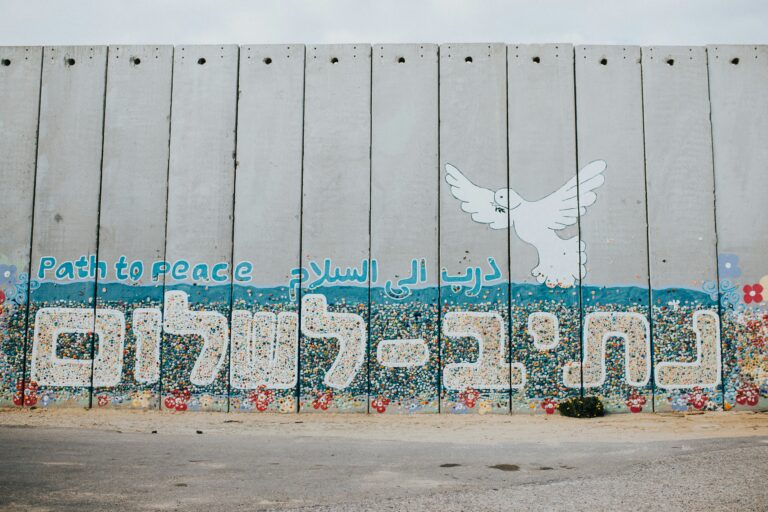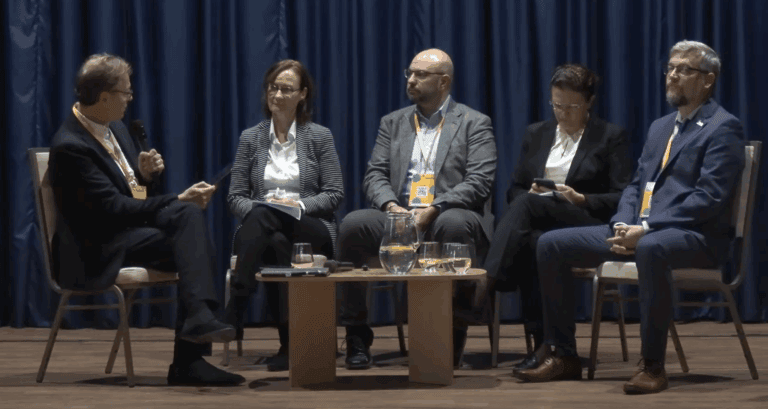For decades, Palestinian and Israeli civil society organisations have warned about the worsening situation in the occupied Palestinian territory and a likely escalation of violence in the region if nothing is done to stop it.
Sadly, Hamas’ attack on 7 October and the subsequent Israeli response in Gaza have proved them right. Given the gravity of the situation, the EU and its member states are now renewing their commitment to the Middle East peace process.
Local civil society as a key European partner in the Middle East peace process
Following the horrors of 7 October and the Israeli military response in Gaza that has already killed over 31,000 Palestinians, finding a just and sustainable solution to the conflict has never felt more urgent. Despite a variety of views, EU member states unanimously agree on the need for Israelis and Palestinians to reach a political settlement based on the two-state solution.
It is evident that, if the EU wants to contribute to the Middle East peace process (MEPP), it must meaningfully involve Palestinian and Israeli civil society. Indeed, the close relationship between the EU and local civil society, often targeted by their authorities, is one of the factors that makes the EU a key player in the region. Moreover, the participation of Palestinian and Israeli civil society is essential for fostering locally-driven change and ensuring that the peace process reflects the needs and aspirations of the affected communities.
However, to work together with local organisations, the EU will need to adopt a more coherent approach towards actors in the region and, at the very least, refrain from adopting measures that further erode space for civil society.
Development aid to Palestine: victim of diplomacy
It is deeply worrying that, in the days following the attack of 7 October, the EU Commissioner for Neighbourhood and Enlargement, Oliver Varhelyi, announced the suspension of all EU development assistance to Palestine. The announcement was quickly corrected, with the European Commission stating it would conduct a review of all development assistance to Palestine, but not suspend payments.
The review found no evidence that money had been diverted or used for unintended purposes. The European Commission nevertheless decided to impose further, more severe, restrictions on Palestinian civil society. These notably include recruiting an international company to conduct third-party monitoring of beneficiaries’ public communications.
Furthermore, several EU member states have decided to suspend all or parts of their development assistance to Palestine following Hamas’ attack. The most striking example is that of Sweden.
Several days after 7 October, the Swedish government decided to suspend all development assistance to Palestine and tasked the Swedish International Development Cooperation Agency (SIDA) to conduct a review of Sweden’s development aid to the region. SIDA’s concluded its review in December and found that no aid was going to Hamas or affiliated entities.
The Swedish government then went on to task SIDA to conduct an additional review and go through all beneficiaries’ public communications after 7 October. The results were published mid-February and, at time of writing, the Swedish government still needs to make a decision.[1]
In Germany, a review of development assistance to Palestine also found that the safeguards in place were robust and that there were no signs of funds being misused. Nevertheless, a confidential report seen by the German news outlet FAZ states that “New cooperation with the six non-governmental organisations listed as terrorist by Israel (…) will no longer be approved.” This despite the same report finding “no case of abuse”.
This change of position regarding funding to the six Palestinian human rights NGOs is deeply worrying. Israel listed the organisations as terrorist in 2021. In August 2022, the German government made clear that “no substantial information was received from Israel that would justify reviewing our policy towards the six Palestinian NGOs”. Since then, it does not appear that the Israeli government has provided additional evidence that would justify a change of policy.
Politicising aid
These are just a few examples of how the EU and its member states can punish civil society for political reasons. This is politicisation of aid taking the form of increased scrutiny and conditions over funding. It leads to growing mistrust towards some donor countries and the deterioration of relationship with EU-based partner organisations.
In Israel and the occupied Palestinian territory, this distrust will make it difficult for the EU to work with civil society in an effort to promote the Middle East peace process, that is, a political settlement based on the two-state solution.
Yet the involvement of civil society is all the more important given, among other factors, the opposition of the current Israeli government to the two-state solution as well as a lack of legitimacy of the Palestinian Authority (PA). Many Palestinians do not think that the PA can rightfully represent them in negotiations since it is seen as prioritising its security collaboration with Israel over the interests of the Palestinian people. In this context, civil society could act both as an intermediary to facilitate dialogue and as a source of local ownership of the process.
There is no doubt that, as a privileged partner of both Israel and Palestine, the EU could have a role to play in the Middle East peace process. Relying on a strong relationship with civil society would without a doubt be an asset. The EU must therefore confront its current loss of credibility. It must rebuild trust and value-based cooperation with partners. This can only be achieved if and when the EU and its member states address the issue of the politicisation of aid.
[1] On 21 March, The Swedish government announced that it was lifting the freeze on funding to Israel / Palestine. The Government announced a decrease in the amount of funding but also in the number of beneficiaries. See here: https://www.dn.se/sverige/regeringen-aterupptar-utvecklingsbistand-till-palestina/


